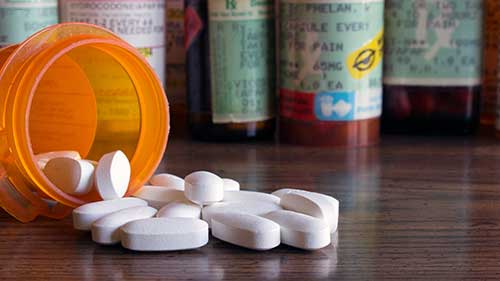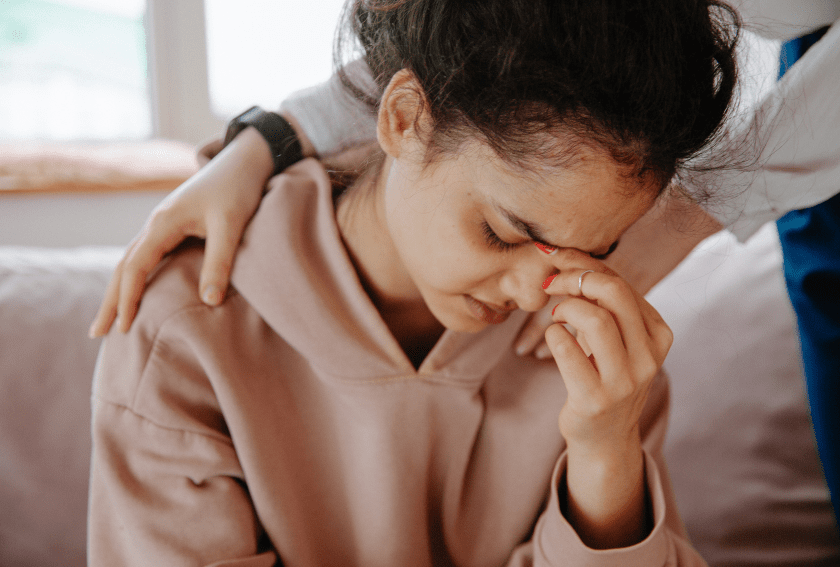5 Ways to Prevent an Opioid Relapse
Preventing relapse is an essential aspect on the road to lasting recovery. Thankfully, nowadays, there is lots of information and resources available about the risks of opioids, what can lead to accidental overdose, and resources for relapse prevention.
If you or someone you care about is struggling with opioid addiction, or you are concerned they are at risk for relapse, consider reaching out to the experts at Oasis Recovery for information about our programs and services. Contact us to speak with a specialist today.
5 Ways to Prevent an Opioid Relapse
1. Complete Your Treatment Program
Those who leave treatment early put themselves at risk for relapse. At Oasis Recovery, we do our best to ensure clients feel safe and comfortable as they progress in their personalized treatment plan.
If a client is struggling, we’re happy to work with them on adjusting their treatment plan. The last thing we want is for someone to leave a program and put themselves at risk for returning to problematic behaviors or engaging in risky situations that can lead to relapse.
2. Follow Through with Aftercare
As you approach the end of your treatment at Oasis Recovery, clients engage in conversations with their healthcare team to determine a sensible aftercare plan. Following the guidance of experts in their field will help you on your journey to maintain long-term sobriety.
If you are struggling after you have completed an initial stay at Oasis Recovery you may want to consider an intensive outpatient program (IOP) to help keep you on the right track.
3. Continue Individual Therapy
Mental health therapy can be a useful tool to help clients reinforce what they have learned during their time in treatment. Regular counseling sessions provide an opportunity to check in with yourself and are a source of accountability. A trained counselor can help make you aware of signs that you may be once again engaging in negative thought patterns or putting yourself in situations with high-risk triggers that could put you at risk for relapse. Individual therapy provides a space for those in recovery to continue their growth as well as methods to help them maintain a sense of well-being on their path to lasting sobriety.
4. Find a Local Support Group
Part of the benefits of a treatment program at Oasis Recovery is getting to know peers who have experienced similar issues. You may find that one of these individuals can be a sponsor for you after you complete your stay at our facility or otherwise be a source of support when you experience high-risk triggers or the temptation to relapse in response to challenging real-world situations.
12-step meetings and related recovery support groups can provide support from others who understand what it’s like to go through addiction, treatment, and recovery. Those who attend meetings can be sources of inspiration and provide first-hand life lessons. They may be able to give you ideas for additional coping mechanisms you can incorporate into your personal wellness program on your recovery journey.
5. Discover Hobbies
You may find that in recovery you have a lot of free time on your hands. Maybe it feels like too much free time. Because we know that idle hands can get you into trouble, it’s wise to consider areas of interest that are a constructive and healthy use of your time and energy. Getting into a hobby is a great way to find new sources of joy and wonder.
Examples of hobbies include:
- Writing or journaling
- Visual art
- Cooking
- Joining a reading group
- Yoga
- Swimming
- Martial arts
- Learning to play an instrument
- Indoor rock climbing
- Volunteering
Contact Oasis Recovery about Opioid Relapse Prevention
Preventing relapse is an essential part of recovery from opioid addiction. If you or your loved one is showing signs that they are struggling to maintain sobriety, we encourage you to reach out to Oasis Recovery for information about our opioid recovery treatment programs including an intensive outpatient program (IOP) and partial hospitalization program (PHP). Contact us today to speak with a specialist about how we can help you receive the care you deserve.










